- Home
- Jack Higgins
A Fine Night for Dying Page 10
A Fine Night for Dying Read online
Page 10
Preston’s face had tightened and he looked ill. “What happened?”
“Rossiter said we’d get seven years if we were caught with him aboard. He put him over the side, wrapped in chains—and he was still alive. Still alive. Sometimes in my dreams, I can still see the look in his eyes when Rossiter put him over the rail.”
Darcy nodded blindly. “And he told you he’d kill your wife if you didn’t keep quiet.”
“That’s right, monsieur.”
Darcy turned abruptly, wrenched open the door, and went out. Mercier looked bewildered, and Chavasse said quietly, “His brother—his brother, Mercier. We’ve come to settle the account. Will you help us?”
Mercier took a reefer jacket from behind the door and pulled it on. “Anything, monsieur.”
“Good. This is what you will do. Wait by the Running Man and watch the harbor. In a little while, you will see the Mary Grant come in. You know her?”
“Of course, monsieur, Gorman’s boat.”
“You will enter the Running Man and tell Jacaud that Gorman has returned and is waiting urgently for him down at the jetty. Make sure that other people hear you tell him this.”
“And afterward?”
“Do you have a boat of your own?”
Mercier nodded. “An old whaleboat with a diesel engine.”
“Good—when we leave the harbor, we will go to a bay called Penmarch. You know it?”
“As I know every inch of this coast.”
“We’ll wait for you there.” Chavasse slapped him on the shoulder. “We will fix him, our brave Jacaud, eh, Mercier?”
Mercier’s eyes glowed with fire, the hatred of years boiling over, and they went out together.
THERE were perhaps a dozen fishermen in the bar when Mercier entered the Running Man, and Jacaud was holding court. They pressed round eagerly as he poured red wine from an earthenware jug, leaving a trail like blood across the counter while the old woman who worked for him looked on with a tight mouth.
“Free,” he roared. “Everything on me. In the morning, I’ll be away and you’ll never see old Jacaud again.”
Mercier had difficulty forcing his way through to the bar, but when Jacaud noticed him, he greeted him effusively.
“Mercier, old friend, where have you been hiding?”
His speech was slurred and he gave every appearance of being drunk. Mercier was instantly suspicious, never having seen him the worse for liquor in his whole life.
“I’ve got a message for you,” he said loudly. “From Monsieur Gorman.”
Several heads turned in interest and Jacaud frowned, instantly sober. “Gorman? He is here?”
“At the jetty. He just came in on the Mary Grant.”
Jacaud put down the jug and nodded to the old woman. “It’s all yours.” He came round the bar and brushed past Mercier. “Let’s go.”
Outside a slight wind moved in from the sea and stirred the pines. “Did he say what he wanted? Is it trouble?”
Mercier shrugged. “Why should he talk to me, Monsieur Jacaud, a person of no importance? He told me nothing.”
Jacaud glared at him in surprise, aware of a new belligerency in his tone, but there was no time to investigate now. At the end of the street, Mercier paused.
“I leave you here, monsieur.”
“You are going home?”
“That’s right.”
Jacaud tried to inject a little friendliness into his voice. “I’ll drop in later, if I may, after I’ve seen what Gorman wants. I’d like to talk things over with you now that I’m leaving.”
“As you wish, monsieur.”
Mercier faded into the night and Jacaud continued on his way, walking quickly, without even the slightest hint of drunkenness in his manner. If anything, he was worried, for he was not overendowed with intelligence. Rossiter had left him strict instructions as to what he was to do and Gorman hadn’t entered into them at all.
The Mary Grant waited at the jetty, her engine whispering quietly. He went down the ladder to the deck and paused uncertainly. There was a movement in the wheelhouse and he went toward it quickly.
“Gorman?” he demanded hoarsely.
He reached the door, and the heart in him seemed to stop beating, for the face that stared coldly at him from the darkness, disembodied in the light from the binnacle, was one that he had never expected to see again in this life.
Chavasse smiled gently. “Come right in, Jacaud.”
Jacaud took a step back and the muzzle of a revolver touched him on the temple. He turned his head involuntarily and found himself looking straight at Darcy Preston.
Sweat sprang to his forehead, cold as death, and he started to shake, for what he was seeing simply could not be. He sagged against the wheelhouse door with a groan, and the Mary Grant left the jetty and moved out to sea.
BY the time they had anchored in Penmarch Bay, Jacaud no longer believed in ghosts, only in miracles, and a miracle was something that could happen to anyone. His awe had been replaced by anger, and he awaited his chance to strike. It came when Mercier arrived and tied up alongside in his old whaleboat. Preston went to catch the line he threw, leaving Chavasse in charge, who suddenly seemed to get careless. Jacaud grabbed for the gun Chavasse was holding, and Chavasse, who had been anticipating just such a move, swayed to one side and clouted him over the head.
The blow would have dazed any other man, sent him to his knees for several minutes. Jacaud simply rolled on one shoulder, came to his feet and dived for the rail. Darcy managed to get a foot under him just in time and Jacaud went sprawling.
When he got to his feet, he found Preston taking off his jacket. “Come on then, Jacaud,” he said. “Let’s see how good you are.”
“You black ape.”
Jacaud came in like a tornado, great arms flailing, hands reaching out to destroy, and proceeded to get the thrashing of his life, as Darcy demolished him with a scientific exactitude that was awe inspiring in its economy. The Jamaican in action was something to see, and hatred gave him an additional advantage.
Jacaud landed perhaps three or four punches, but everything else he threw only touched on air. In return, he was subjected to a barrage of punches that were devastating in their effect, driving him to his knees again and again until a final right cross put him on his back.
He lay there sobbing for breath, and Darcy dropped to one knee beside him. “And now, Jacaud, you will answer some questions, quickly and accurately.”
Jacaud spat in his face.
Chavasse pulled Darcy up. “Take a breather. Let me try.” He lit a cigarette. “We all hate you here, Jacaud. The Jamaican, because you and Rossiter drowned his brother the other week. Mercier, because you dragged him down into the filth with you. Me, because I don’t like your smell. You’re an animal—something from under a stone—and I’d no more hesitate to kill you than I would to step on a slug. Now that we know where we stand, we’ll try again. Where has Rossiter gone?”
Jacaud’s reply was coarse and to the point.
Chavasse stood up. “On your feet.”
Jacaud hesitated and Mercier kicked him in the ribs. “You heard the gentleman.”
Jacaud got up reluctantly and Chavasse tossed Darcy a coil of rope. “Tie his wrists.”
Jacaud didn’t bother to struggle. “You can do what you like; you won’t make me talk. I’ll see you in hell first.”
He raved on for some time, but Chavasse ignored him and walked to the stern, where the swivel seats were fastened to the deck for big-game fishing and the hoist and pulley were rigged ready to haul in tuna or shark.
“Let’s have him down here.”
Darcy pushed Jacaud forward, and Chavasse swung him around and looped his bonds over the hook on the end of the pulley line. “Here, what is this?” Jacaud demanded.
Chavasse nodded to the other two. “Haul away.”
As Preston and Mercier turned the winch handle between them, Jacaud’s feet left the deck, and in a moment he was three
feet up in the air. He started to struggle, kicking wildly, and Chavasse pushed the hoist out over the water. Jacaud hung there, cursing, and Chavasse tried again.
“Ready to talk, Jacaud?”
“To hell with you—to hell with all of you.”
Chavasse nodded, Darcy released the winch handle and Jacaud disappeared beneath the surface. Chavasse gave him a full minute, checking his watch carefully, then nodded, and Darcy and Mercier cranked him in.
Jacaud hung just beyond the rail, chest heaving as he sobbed for breath. He started to cough, then vomited. Chavasse gave him a moment to collect himself.
“Hellgate, Jacaud, and Montefiore. I want to know about both of them.”
Jacaud cursed him, kicking out wildly. Chavasse turned and nodded, his face cold, and the winch creaked again.
This time he made it one minute and a half, and when Jacaud appeared, there was hardly any movement at all. Chavasse swung him in, and after a while the great head lifted and the eyes opened.
“Hellgate,” he said with a croak. “It’s a house in the Camargue near a village called Châtillon. Monsieur Montefiore owns it.”
“And that’s where Rossiter and the others have gone?”
Jacaud nodded weakly.
“And Montefiore, is he there now?”
“I don’t know. I’ve never met him. I only know what Rossiter has told me.”
“Why didn’t you leave with the others?”
“Rossiter wanted me to take care of Mercier—he thought he knew too much and he wanted me to leave openly so that questions would not be asked. I only had a lease on the inn. It’s up in a couple of months anyway, so I made it over to the old hag who works for me. I told everyone I was leaving for Corsica tomorrow. That I’d been left a farm by a distant relative.”
Chavasse nodded slowly. “So, you were to kill Mercier?”
Jacaud started to cough, then gave a strange choking cry. His body heaved as if he were in pain, and Mercier and Darcy lowered him to the deck quickly. Mercier dropped to his knees and put an ear against Jacaud’s chest. When he looked up, his face was grave.
“He is dead, monsieur. His heart has given out.”
“Let’s hope he told the truth then,” Chavasse said calmly. “Get the ropes off him and put him in the saloon.”
He turned and Darcy grabbed him by the arm. “Is that all you can say, for God’s sake? We’ve just killed a man.”
“One way or the other, he was due for it,” Chavasse said. “So cut out the hearts and flowers. I haven’t got time.”
He pulled free and went into the wheelhouse. He was examining the chart when they joined him. “I need a nice deep channel,” he said to Mercier. “Deep enough for the Mary Grant to sink into without trace.”
Mercier sighed. “A pity, monsieur. She’s a beautiful boat.”
“She’s still got to go,” Chavasse said. “Where would you suggest?”
Mercier considered the chart for a moment or two, then jabbed a finger at a group of rocks marked as dangerous about six miles out.
“The pinnacles, monsieur, they’ve taken plenty of ships in their time. They stick up from a trench a thousand feet deep. Anything that goes down there will stay down, believe me.”
Chavasse nodded. “That’s it, then. You lead the way in the whaler. I’ll follow. Go with him, Darcy.”
“I’ll stay with you.”
Chavasse shook his head. “No point, this kind of job only needs one.”
“I said I’d stay.” Darcy’s voice was bleak. “What I say, I mean.”
He moved into the prow and stood there with his hands in his pockets, shoulders hunched.
“I don’t think he is too happy, monsieur,” Mercier commented. “Which surprises me. After all, they did as much to his own brother.”
“Which is exactly what’s bothering him,” Chavasse said. “He isn’t a hunting animal, Mercier. Now let’s get moving. We haven’t much time.”
THE pinnacles were first observed as patches of white water in the distance. As the boat approached, the turbulence increased and Chavasse was aware of great plumes of spray that blossomed in the night.
The pinnacles themselves were a scattered group of jagged rocks, in some cases permanently awash, and in others, twenty or thirty feet above the waves. When Mercier whistled sharply and waved, the agreed signal, Chavasse cut the engines and called to Darcy, who had been waiting by the forward hatch with a fire axe. Now he dropped inside and commenced to batter a series of holes in the prow. When he reappeared, she was already settling at that end and he was soaked to the skin.
Chavasse unfastened a cork life belt bearing the ship’s name and tossed it overboard, as Mercier came alongside.
“Lost at sea,” he said. “Sunk with all hands. Nobody will ever see Jacaud again.”
“And Gorman?” Darcy asked. “What about him?”
Chavasse shrugged. “Believe it or not, but most people who take a dive into the Channel don’t turn up again. Even if somebody does find what’s left of him after a few weeks, it’ll all fit neatly.”
“You have a naturally tidy mind,” Darcy said.
“Too complicated. I’m a professional, you’re not. It’s as simple as that.”
The whaleboat closed in and they scrambled aboard. Mercier took her round in a wide circle and they watched. The Mary Grant was well down by the head now, her stern lifting out of the water. When she went, she disappeared so quickly that if any one of them had closed his eyes momentarily, he would have missed it. The waters rolled over, and Mercier opened the throttle and took the whaler away.
“And now what?” Darcy Preston demanded, dropping down on one of the wide seats, shoulders hunched against the spray.
“We catch a train,” Chavasse said. “A train for Marseilles, if there is one, or is it still we?”
Darcy nodded slowly. “I’ve gone too far now to step back. You needn’t worry—I’ll be behind you all the way.”
“Fair enough.” Chavasse turned to Mercier. “Take us to some quiet spot on the coast as near to Saint Brieuc as possible. Can you manage that?”
“Certainly, monsieur.”
Chavasse gave him a cigarette and held out a match in cupped hands. “About Jacaud, Mercier, there could be questions.”
“Perhaps, monsieur, but I doubt it. He was to leave in the morning. Most people will think he left a little earlier. In any case, he was seen to go out in the Mary Grant, and where is the Mary Grant now? Perhaps in a few days, that life belt will be found by a fishing boat or drift ashore somewhere, and perhaps not. Henri Jacaud never existed, monsieur.”
“And you? What will you do?”
“I will bury my wife,” Mercier said simply.
FRANCE THE CAMARGUE
CHAPTER 12
It was just before midnight when they reached St. Brieuc. By chance there was a train due out in fifteen minutes to Rennes, and Chavasse decided to take it rather than hang about.
At Rennes they had a delay of an hour and a half before the Marseilles train, and they spent it in a café just outside the station. The Jamaican was still brooding and had little to say for himself. In the end, Chavasse had had enough.
“It’s no good going on like this,” he said. “Either we clear the air now or you drop out.”
“Wouldn’t that be a problem?” Darcy said. “I’m not even in this country officially.”
Chavasse shook his head. “I can contact our Paris office. They’ll get you out.”
Darcy looked genuinely troubled. “I don’t know, Paul. When I first got the idea of following you, it seemed to make sense, and especially later when I heard what they’d done to Harvey. I was bitter and angry; I wanted revenge.”
“So?”
“That business with Gorman, I didn’t mind that. After all, he was trying to kill you. There was nothing else I could do, but Jacaud.” He shook his head. “That sticks in my throat.”
“If that’s the way you feel, then you’d better leave,” Chav
asse told him. “Rossiter drowned your brother like a rat and without a qualm, he tried his hand at mass murder when the Leopard went down, and didn’t do so badly when you remember what happened to Mrs. Campbell and Old Hamid. He won’t hesitate to see the both of us off the moment he claps eyes on us and realizes we’re still in the land of the living. This isn’t the Old Bailey or the Jamaican High Court. There’s only one law here—kill or be killed—and I’ve had direct orders. Ho Tsen, Rossiter and Montefiore—they’ve all got to go.”
The Jamaican shook his head. “You know, back there in the old days, living with Harvey in Soho, I met every kind of villain there was, but you—you’re in a class of your own.”
“Which is why I’ve survived twelve years at this bloody game,” Chavasse said. “Now are you in or out?”
“The way I see it, I don’t really have much choice in the matter. I know that once I get anywhere near Rossiter, if I don’t get him first, he’ll get me. It goes against the grain, that’s all, to accept that that’s the way it is. I had years of it in Harvey’s particular jungle—I don’t suppose a psychologist would have much difficulty in working out why I took to the law.” He sighed heavily. “But you can count on me, Paul. I won’t let you down.”
“Good, now I know where I am, I’ll put a call through to our field agent in Marseilles. I’d like him to be ready for us when we arrive in the morning.”
He stood up and Darcy said, “This place, the Camargue—what is it exactly?”
“The delta area at the mouth of the Rhône,” Chavasse told him. “About three hundred square miles of lagoons and waterways, marshes, white sand dunes and hot sun, though this isn’t the best time of the year for that. It’s famous for three things. White horses, fighting bulls and flamingos. I was there as a boy twenty years ago and I’ve never forgotten it.”
“But what in the hell are they doing in a place like that?” Darcy demanded.
“That remains to be seen, doesn’t it?” Chavasse said and went to make his phone call.

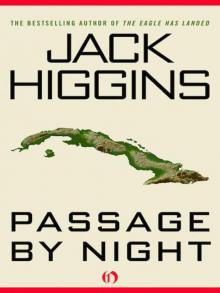 Passage by Night (v5)
Passage by Night (v5)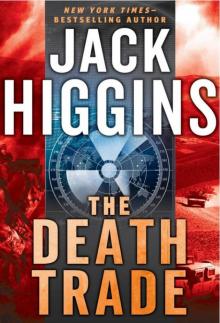 The Death Trade sd-20
The Death Trade sd-20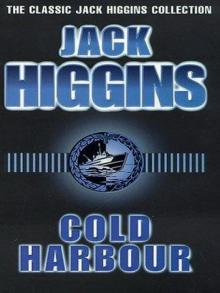 Cold Harbour
Cold Harbour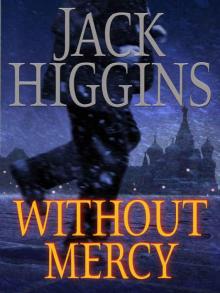 Without Mercy
Without Mercy Solo (Aka the Cretan Lover)(1980)
Solo (Aka the Cretan Lover)(1980) First Strike
First Strike Confessional - Devlin 03 (v5)
Confessional - Devlin 03 (v5)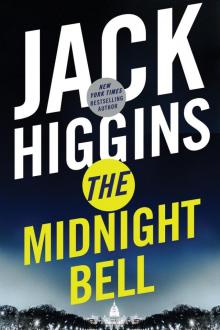 The Midnight Bell
The Midnight Bell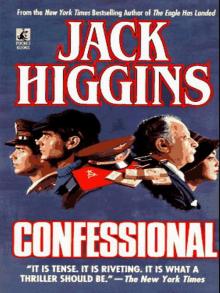 Confessional
Confessional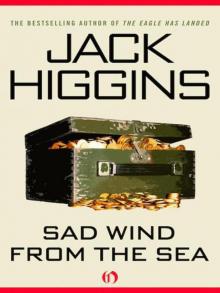 Sad Wind from the Sea (v5)
Sad Wind from the Sea (v5)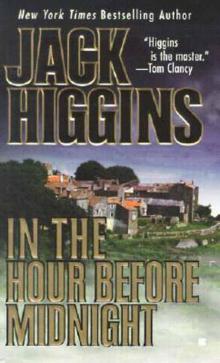 In The Hour Before Midnight aka The Sicilian Heritage
In The Hour Before Midnight aka The Sicilian Heritage Wrath of the Lion
Wrath of the Lion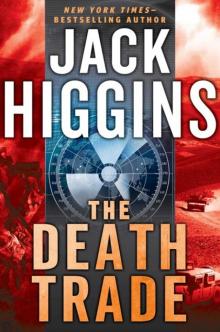 SDillon 20 - The Death Trade
SDillon 20 - The Death Trade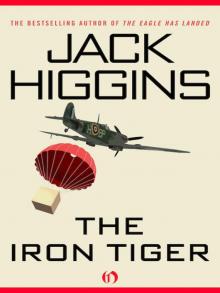 the Iron Tiger (1974)
the Iron Tiger (1974)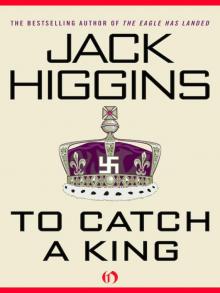 To Catch a King
To Catch a King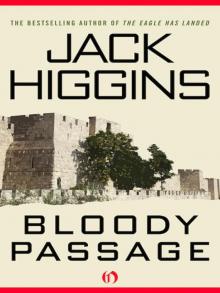 Bloody Passage (1999)
Bloody Passage (1999) Wrath of the Lion sd-8
Wrath of the Lion sd-8 Sharp Shot
Sharp Shot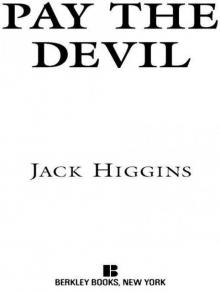 Pay the Devil (v5)
Pay the Devil (v5) A Devil Is Waiting
A Devil Is Waiting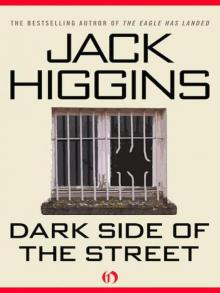 Dark Side of the Street - Simon Vaughn 01 (v5)
Dark Side of the Street - Simon Vaughn 01 (v5)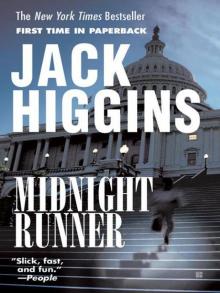 Midnight Runner - Sean Dillon 10
Midnight Runner - Sean Dillon 10 Wrath of God
Wrath of God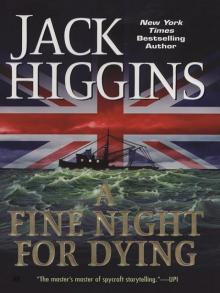 A Fine Night for Dying
A Fine Night for Dying Hell Is Too Crowded v5)
Hell Is Too Crowded v5)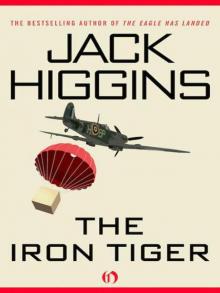 the Iron Tiger (v5)
the Iron Tiger (v5)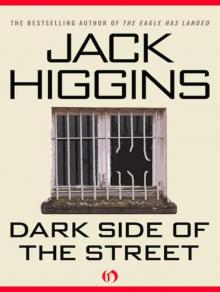 Dark Side of the Street pc-5
Dark Side of the Street pc-5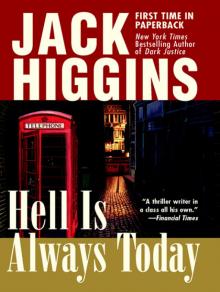 Hell Is Always Today
Hell Is Always Today Eagle Has Landed
Eagle Has Landed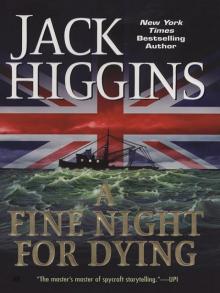 A Fine Night for Dying pc-6
A Fine Night for Dying pc-6 the Last Place God Made (v5)
the Last Place God Made (v5) the Valhalla Exchange (1976)
the Valhalla Exchange (1976)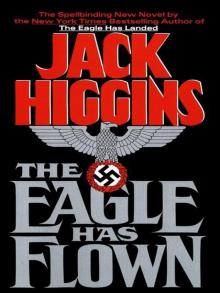 The Eagle Has Flown
The Eagle Has Flown Sure Fire
Sure Fire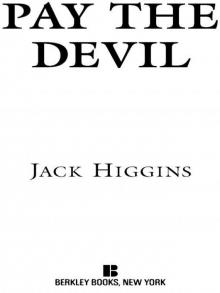 Pay the Devil (1999)
Pay the Devil (1999) Memoirs of a Dance Hall Romeo
Memoirs of a Dance Hall Romeo![a Prayer for the Dying (1974)[1] Read online](http://i1.bookreadfree.com/i1/04/02/a_prayer_for_the_dying_19741_preview.jpg) a Prayer for the Dying (1974)[1]
a Prayer for the Dying (1974)[1]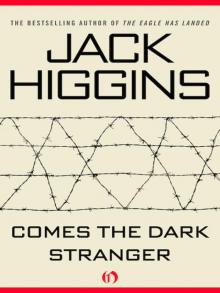 Comes the Dark Stranger
Comes the Dark Stranger Dark Side Of the Island (v5)
Dark Side Of the Island (v5)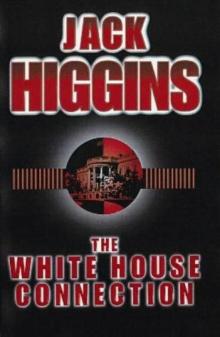 The White House Connection sd-7
The White House Connection sd-7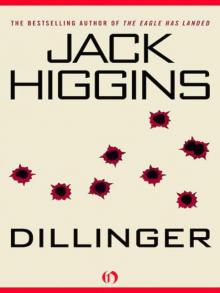 Dillinger (v5)
Dillinger (v5) Eye of the Storm
Eye of the Storm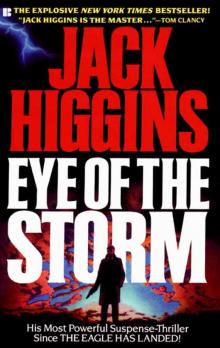 Eye Of The Storm aka Midnight Man
Eye Of The Storm aka Midnight Man A Darker Place
A Darker Place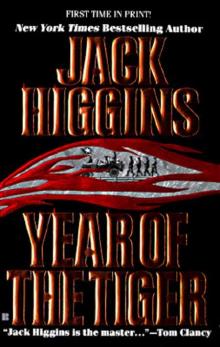 Year Of The Tiger
Year Of The Tiger Death Run
Death Run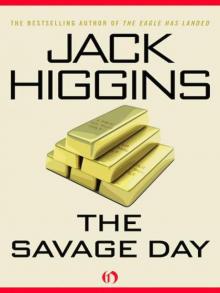 the Savage Day - Simon Vaughn 02 (v5)
the Savage Day - Simon Vaughn 02 (v5)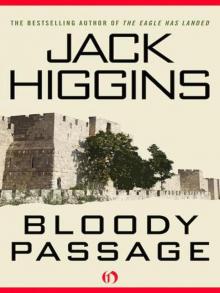 Bloody Passage (v5)
Bloody Passage (v5) The Bormann Testament
The Bormann Testament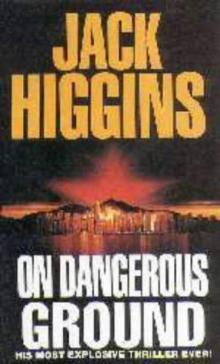 On dangerous ground sd-3
On dangerous ground sd-3 Dark Justice
Dark Justice Sheba
Sheba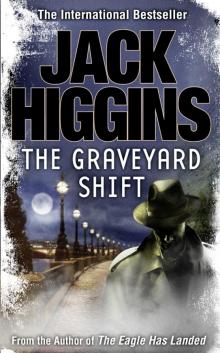 The Graveyard Shift
The Graveyard Shift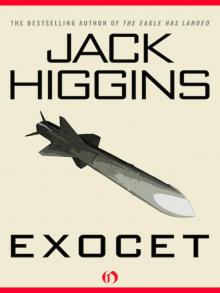 Exocet (1983)
Exocet (1983) The Wolf at the Door
The Wolf at the Door The wolf at the door sd-17
The wolf at the door sd-17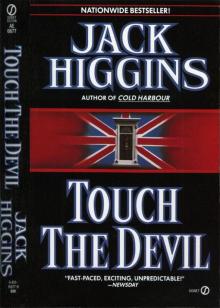 Touch The Devil
Touch The Devil The President’s Daughter
The President’s Daughter A Prayer for the Dying (v5)
A Prayer for the Dying (v5)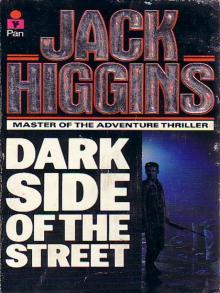 Dark Side Of The Street
Dark Side Of The Street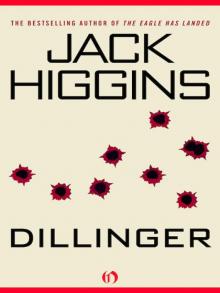 Dillinger (1983)
Dillinger (1983) Midnight Never Comes pc-4
Midnight Never Comes pc-4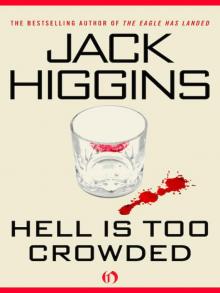 Hell Is Too Crowded (1991)
Hell Is Too Crowded (1991)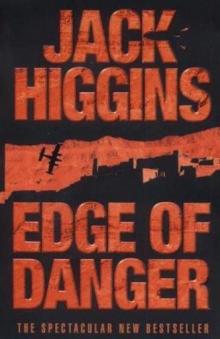 Edge of Danger sd-9
Edge of Danger sd-9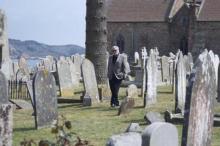 The Thousand Faces of Night (v5)
The Thousand Faces of Night (v5)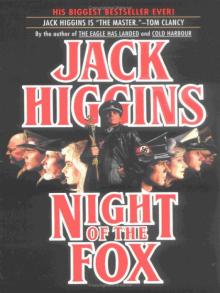 Night Of The Fox
Night Of The Fox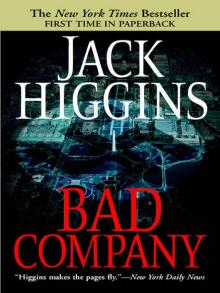 Bad Company
Bad Company The Killing Ground
The Killing Ground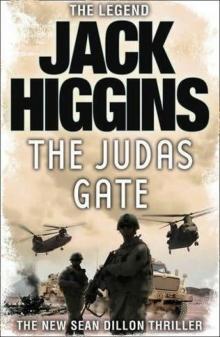 The Judas gate sd-18
The Judas gate sd-18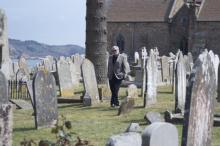 The Thousand Faces of Night (1961)
The Thousand Faces of Night (1961) Solo (Aka the Cretan Lover) (v5)
Solo (Aka the Cretan Lover) (v5)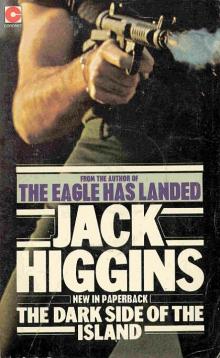 The Dark Side Of The Island
The Dark Side Of The Island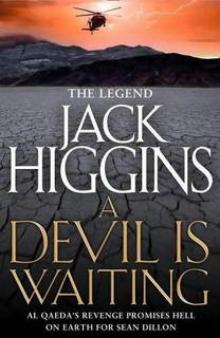 A Devil is vaiting sd-19
A Devil is vaiting sd-19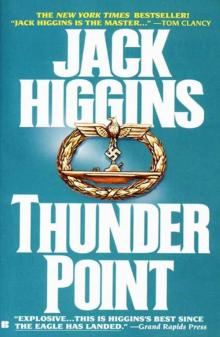 Thunder Point
Thunder Point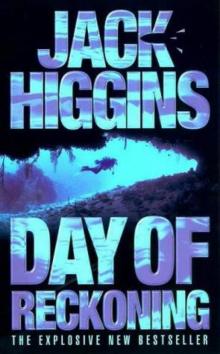 Day of Reckoning sd-8
Day of Reckoning sd-8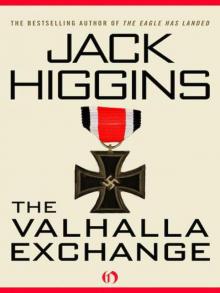 the Valhalla Exchange (v5)
the Valhalla Exchange (v5)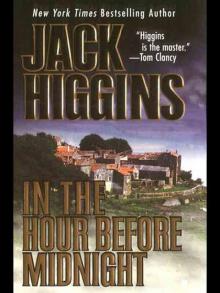 In the Hour Before Midnight
In the Hour Before Midnight The Bormann Testament (The Testament of Caspar Schultz)
The Bormann Testament (The Testament of Caspar Schultz) The Judas Gate
The Judas Gate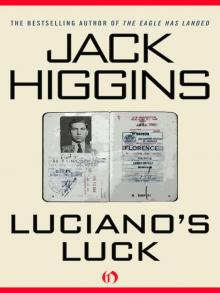 Luciano's Luck
Luciano's Luck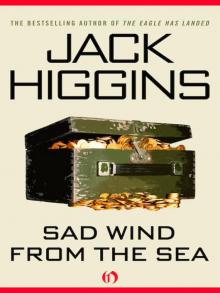 Sad Wind from the Sea (1959)
Sad Wind from the Sea (1959)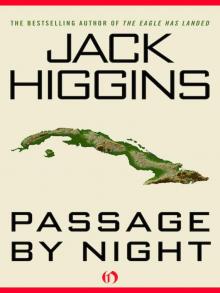 Passage by Night (1987)
Passage by Night (1987) Exocet (v5)
Exocet (v5)